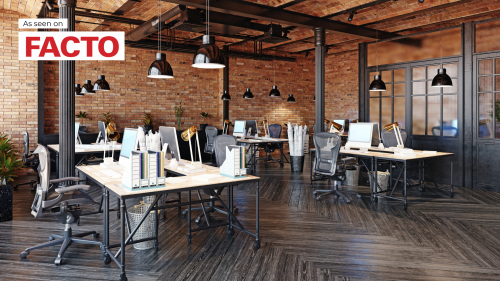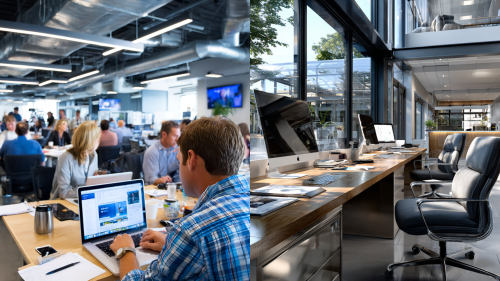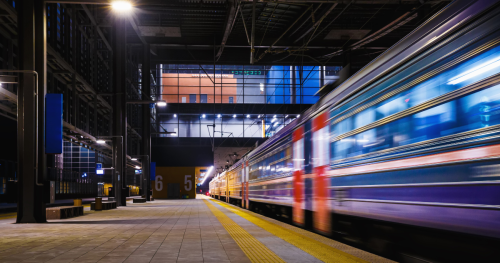Client
Klarent Hospitality at Double Three Dartford Hotel by Hilton
Scope
170-room hotel in East London looking for energy savings measures to reduce costs and emissions.
Handling Costs and Energy Management in Hotels
With high occupancy rates, hotels operate around the clock, consuming vast amounts of energy. This constant demand can make utility costs unpredictable and increasingly unaffordable, especially with fluctuating energy prices. Energy use across systems like HVAC, lighting and water heating can easily spiral out of control without proper management, adding to operational costs and making a significant environmental impact. This creates a need for effective energy strategies that save on costs while maintaining guest comfort.
How DoubleTree by Hilton Cut Energy Costs by 65% with Spacewell Energy
Located near the Queen Elizabeth Bridge over the River Thames, the DoubleTree by Hilton Dartford Bridge offers over 170 rooms, a restaurant and leisure facilities, including an indoor pool, sauna and steam room. The hotel has always been a significant energy consumer, with electricity usage from the conventional grid reaching around 1.52 gigawatt hours annually.
DoubleTree by Hilton faced the same challenges that many hotels encounter: high energy costs, operational inefficiencies, and a growing commitment to sustainability. After seeing their energy costs continuing to grow, they decided to take action to manage energy more efficiently and reduce their costs.
Klarent Hospitality started working with Spacewell enegry’s partner GETGEN, who undertook a feasibility study to identify cost-effective and low carbon options for energy efficiency, generation and management.
This study comprised of a full site survey and desktop analysis of the site’s energy profile and utility bills. GETGEN identified measures that could help to reduce emissions, lower site operational costs and improve the reliability of the site’s existing heating systems by utilising Indop (CHP provider) Combined Heat and Power Schemes.
The study also found issues with the existing Building Management System (BMS), indicating poor controls and the likelihood of items running 24 hours unnecessarily.
The Energy Solution: A Purpose-Built Energy Centre and Energy Monitoring
To meet the site’s heating and electrical demands more efficiently, a new energy centre was constructed to house three INDOP Macro 50 CHP units. These natural gas-powered units now provide:
- 150kW of electricity
- 243kWt of thermal output
This setup supplies a large portion of the hotel’s energy demand, running in parallel with the grid and significantly reducing reliance on conventional energy sources.
The thermal output is routed into the hotel’s low temperature hot water (LTHW) system, covering space heating, pool heating, and hot water supply via two storage calorifiers. A compact pipe bridge was installed to streamline connections for gas, flow/return lines, and control systems.
A New BMS for Full Control
A modern Tridium BMS and associated field controls were installed to optimize energy usage and building performance. Key improvements included:
- New BMS controller in the Main Plant Room
- Replacement of cartridge fuses with MCBs
- Installation of variable speed drives on LTHW and CHW pumps, as well as AHUs
- Upgraded control systems in guest bedrooms
In unoccupied rooms, fan coil units (FCUs) are now programmed to refresh air every 24 hours without temperature conditioning. Room controllers are networked to enable automated HVAC shutdown and temperature resets—minimizing energy waste without sacrificing guest comfort.
The Results: A 65% Savings Transformation
The outcomes of this project were significant and swift:
- Grid electricity dependence dropped by 75%
- Conventional electricity use fell below 0.47 GWh in 2023
- CHP-generated heat reduced the load on existing boilers, which are now near-redundant
- Room-level energy efficiency improved dramatically, with electricity usage per room sold dropping from 40.01 kWh in 2022 to 20.46 kWh in 2023
Overall, the project delivered a 65% general energy savings, translating to £376,911 in cost reductions within just 12 months.
With the new infrastructure in place, Klarent Hospitality is now positioned to extend predictive maintenance and HVAC optimization, continue reducing carbon emissions site-wide and explore further integration of renewable energy technologies.
Smart Energy Management Strategies for Hotels
As you just saw, hotels can reduce energy use through energy monitoring, focusing on targeted upgrades to equipment and systems, supported by our innovative technology. Here’s three components — combined heat and power (CHP) systems, advanced building management systems (BMS) and energy management systems (EMS) — that contribute to better energy management in the hospitality sector:
Combined Heat and Power (CHP): CHP units generate electricity and heat from a single fuel source, allowing hotels to meet much of their energy demand on-site. These units capture the heat generated during electricity production and use it for heating spaces, pools and hot water. This significantly reduces grid dependency and helps hotels stabilize energy costs. Installing CHP also means less strain on the traditional energy grid and a lower carbon footprint.
Building Management Systems (BMS): BMS is not a new technology, but having a solution that adapts to your requirements is key. A BMS integrates with a hotel’s HVAC, lighting and other energy-consuming systems to optimize operations based on real-time needs. For example, HVAC can be automatically adjusted in unoccupied rooms, reducing waste without affecting comfort. Advanced BMS solutions also monitor system performance and enable predictive maintenance, extending equipment lifespan and avoiding unnecessary replacements. When linked to occupancy sensors, these systems ensure energy is used only where it’s needed, further reducing waste and operational costs.
Energy Management Systems (EMS): To maximize the benefits from the two options mentioned above, an Energy Management Solution can help you. An EMS is a solution to centralize all data related to energy consumption. With it, you can clearly monitor data, identify inefficiencies and measures to save energy, and identify patterns to help you manage your costs and keep your energy consumption under control. All, while ensuring your operations run smoothly and your guests and workers are comfortable in your facilities.










